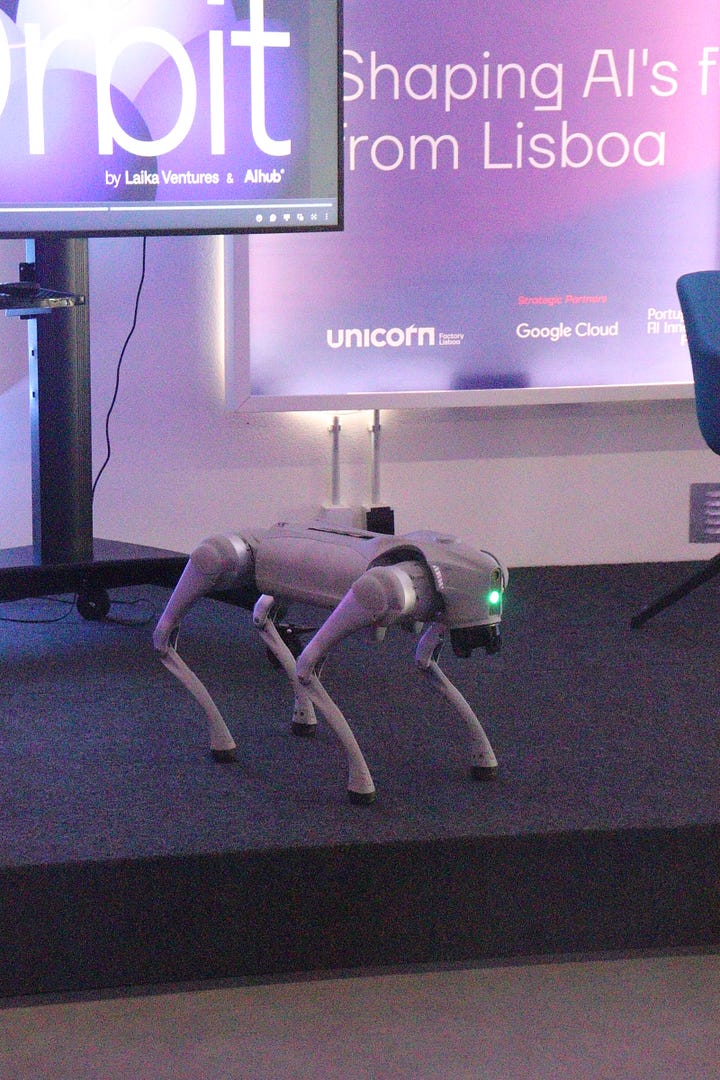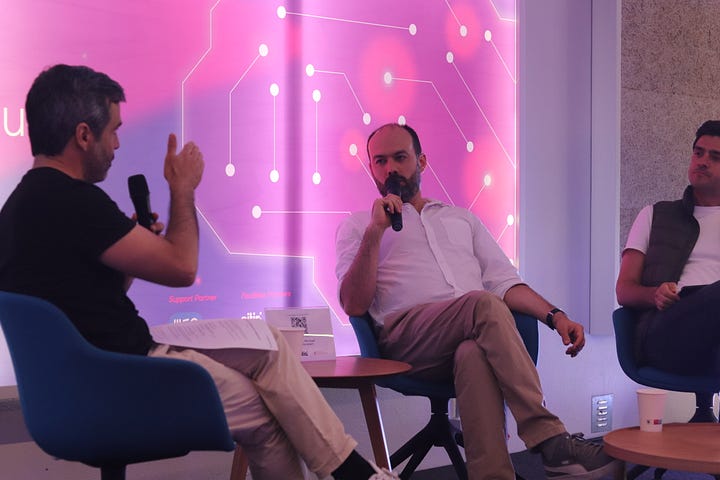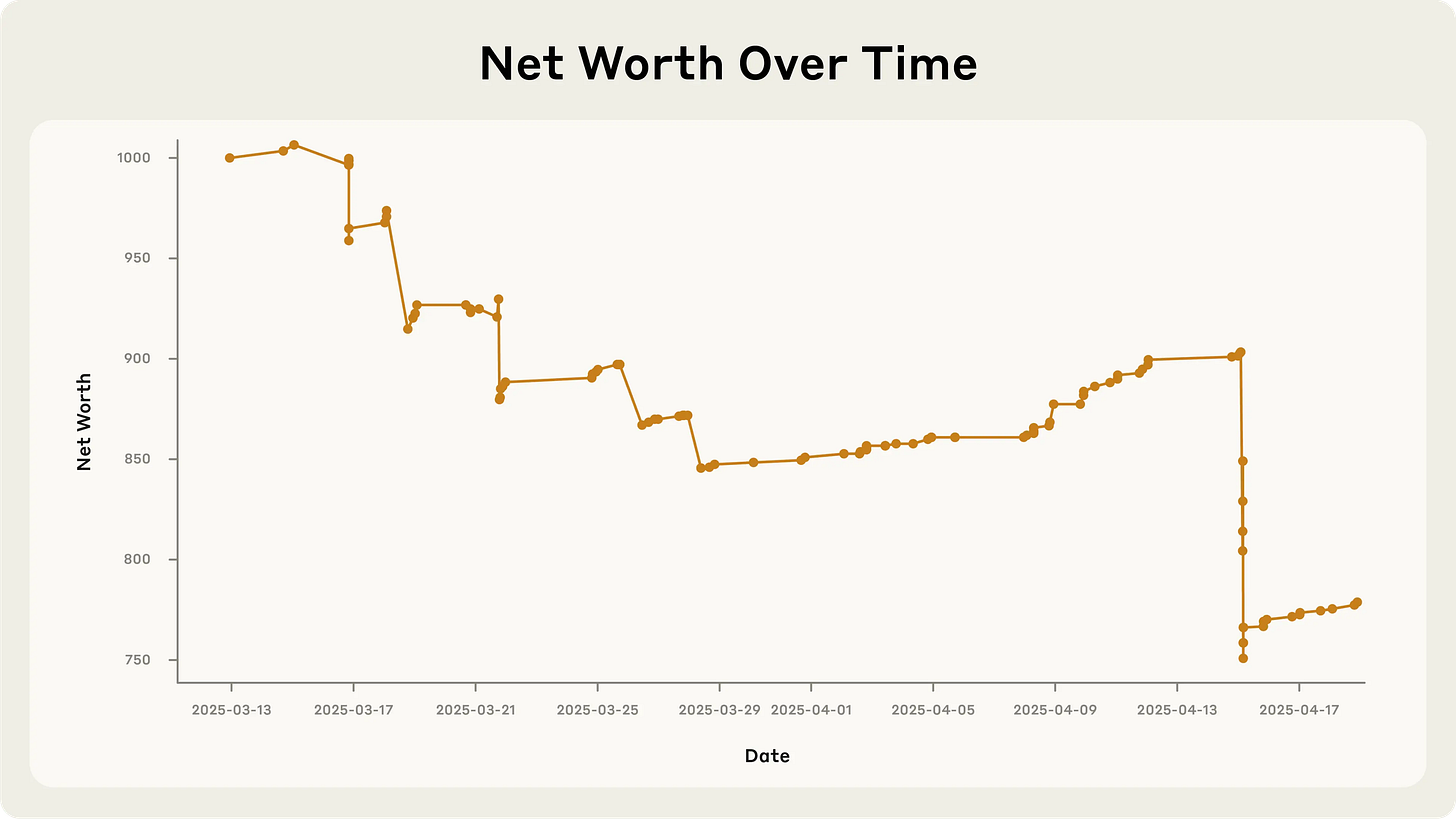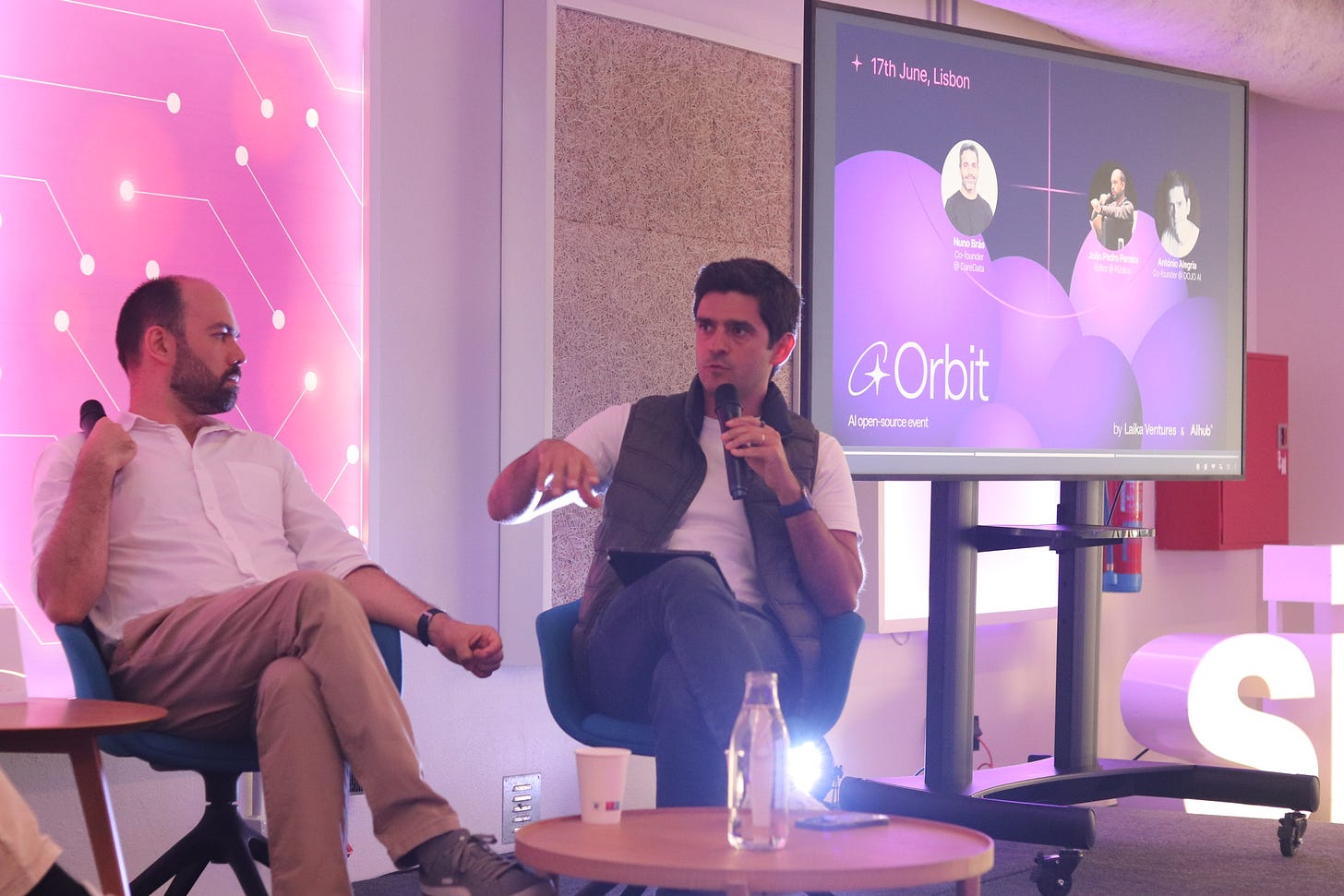Beyond the Mainframe Nº6 | Laika Ventures
AI drama unfolds: betrayals, battles, and the silent watchers 🍿🤖
Welcome to Laika Ventures’ monthly newsletter! We promise to bring you the most relevant news on AI, fire 🔥 discussions, and more.
We all know trying to stay updated on what’s happening in AI can be difficult with so much going on — let’s be real, this feels less like a tech industry and more like a soap opera. This month, we’ve got drama, betrayal, family founder conflicts, and moral dilemmas. While some are fighting on the front lines, companies like Apple remain on the sidelines, watching from afar. 🔭
Let’s go!
Meta updates 💡
Meta is investing $14 billion in Scale to secure high-quality training data for AI models. In this deal, Meta is securing 49% and bringing Alexandr Wang to Meta’s leadership. This move represents a major strategic maneuver perceived as a shortcoming in the AI race for Meta. For context, Scale AI is an American data annotation company that provides data labeling and model evaluation services to accelerate the development and deployment of AI applications. Its mission is to help organizations build high-quality AI models by providing the necessary data-centric infrastructure.
Meta is expanding their AI smart-glasses in a partnership with Oakley targeting athletes with a high-profile.
On an interview with his brother, Jack Altman, the CEO of OpenAI shared that Meta tried to hire OpenAI employees and offered $100 million signing bonuses and none of his staff accepted the offer. In reality, three senior researchers have left OpenAI to join Meta confirmed by one of them, and it seems that Zuckerberg is fighting to get more.
AI controversies 🫢
We started the month with the COO of OpenAI commenting on Jony Ive and how they’re looking to build the ambient computing layer. To then OpenAI silently taking out the presentation video of collaboration with Jony Ive’s AI startup and its mention on their website. To finally understand that it’s related to a trademark lawsuit against from iyO to OpenAI and designer Jony Ive over their new AI hardware venture, named "io", which Sam Altman shared his view online. For context, iyO was founded by former Google X employees Jason Rugolo and Neil Treat. After beginning as a project within Google, it spun out to become an independent company between 2021 and 2024. The company's mission is to enrich communication by creating screenless, voice-first wearable audio computers that use artificial intelligence for natural language computing.
One of prominent and vocal critic of current trajectory of the technology, Yoshua Bengio, decided to create a non-profit dedicated to “safe-by-design” AI systems, securing $30M from Google CEO Eric Schmidt's philanthropic arm, Skype co-founder Jaan Tallinnm and others. Also known as the Godfather of AI for his pioneering work in AI, he doesn’t believe OpenAI will adhere to its original mission and has concerns for the models safety.
Reddit is suing Anthropic for unauthorized use of site’s data for commercial purposes, making it the first Big Tech company to legally challenge an AI model provider. Reddit has deals with OpenAI and Google to use its data with terms that protect users’ interests and privacy. It’s worth to mention that Sam Altman owns a relevant stake at Reddit (around 8.7%) and was once a member of the board of directors.
Talking about suing, as you know by now, The New York Times (NYT) is suing OpenAI (and Microsoft) and recently asked in court for the company to retain all user content indefinitely going forward, which was not accepted by Open AI. Sam Altman shared his view on X saying “there should be some version of “AI privilege” to protect conversations with AI”.
And continuing the thread: The Walt Disney Company and Comcast's Universal have filed a landmark lawsuit against the AI image-generation company Midjourney, Inc., marking a major escalation in the legal battle between content creators and the artificial intelligence industry. Even though, we’ve seen many companies going after AI firms for copyright infringement, this is the first time for Hollywood players. Days after, Midjourney launched their first video generation model.
In a year where every company is going all-in in AI, Apple seems to be taking the year off, contrary to what they’ve mentioned last year on AI — “It’s the next big step for Apple” —, taking its foot off the gas pedal, and focusing on seamlessly baking AI features into daily apps, as they announced at WWDC 2025. Before WWDC 2025, Apple published a paper that challenges the claims made by companies like OpenAI, Google, and Anthropic about the "reasoning" capabilities of their most advanced AI models — they argue that the apparent reasoning abilities of so-called Large Reasoning Models (LRMs) are more of an "illusion" than a reality. Later in an interview, Apple executives defended they’re AI efforts saying that it was a good decision to not launch if it didn’t meet quality standards.
GovAI 🏛️
Following the last months news on AI and Government, the U.S. 🇺🇸 Food and Drugs Administration (FDA) launched an AI tool to enhance and optimize “the performance and potential of every employee”. Elsa is a large language model–powered AI tool designed to assist with reading, writing, and summarizing. It can summarize adverse events to support safety profile assessments, perform faster label comparisons, and generate code to help develop databases for nonclinical applications.
Related to the previous topic, Clarity - an AI platform for breast cancer prediction - becomes the first FDA-authorized AI platform for breast cancer prediction.
More AI leaders are launching products for directed to Government, and specialized, for example, for national security. ChatGPT Gov was launched in january this year. Anthropic announced Claude Gov Models and OpenAI launched OpenAI for Government - a contract with a $200 million ceiling “to help the Defense Department identify and prototype how frontier AI can transform its administrative operations”.
Other relevant news 👀
Microsoft announced Bing Video Creator powered by OpenAI’s video generation model, Sora, for free on the Bing Mobile App and coming soon to desktop and within Copilot Search. Sora was very hyped but it didn’t quite live up to the expectations and other models (e.g. Google Deepmind Veo 2 and 3, Runway Gen-4) , outperformed in specific aspects (e.g. resolution, control).
IBM is taking a step forward and announced the watsonx AI Labs - an innovation hub in NYC that aims to increase enterprise AI adoption, by co-creating gen AI solutions with IBM clients. At the same time, the company acquired Seek.ai, which is a next-generation automation platform that lets anyone in your organization simply ask for the data they need, and get data fast.
OpenAI for business can now connect directly with Google Drive, Dropbox, and other cloud services, meeting recording capabilities, and has custom connectors for enterprise customers.
Toys will become more personalized now that Mattel and OpenAI partner-up. Mattel is home to some of the world’s most well-known brands, including Barbie, Fisher-Price, Hot Wheels, American Girl, Thomas & Friends, UNO and MEGA.
The market is confirming the “vibe coding” trend with Wix acquiring Base 44 for $80 million. Base44 is an AI-powered, no-code platform, where users simply express what they want to build in plain language, and an intelligent agent handles the technical execution.
EvenLabs launched 11ai, a voice-first AI-assistant that can take actions, and is integrated with other tools.
Google released Gemini CLI open-sourse and free bringing Gemini directly into developers’ terminals. The tool, which is currently in preview, aims to streamline coding, debugging, and automation by allowing developers to use natural language commands for complex tasks. This is clearly a strategic move by Google to compete directly with OpenAI's Codex CLI and Anthropic's Claude Code and to build a strong relationship with developers.
Funny updates 😆
Claude would be terrible to manage a small shop. At a certain point it even hallucinated and “thought” it was a real person.
Marketing is broken
Marketing became a function very much dependent on performance marketing, almost in an exclusive way, calculating how much to spend, let’s say x, to then expect the return x+y. But this is only true to ads that target people who are already ready to buy, they have that intention and are looking for that sort of product. So when that specific ad appears they will convert, but it is not linear. You can't convert 10 today, 20 tomorrow and 30 after that. It will actually start to decrease.
Marketing got stuck in a loop of spending on ads to convert existing demand — the low-hanging fruit. But once that fruit is picked, the returns diminish. I witnessed many companies swinging between over-investing in performance, then trying to invest in brand in a very ad hoc way. It is very complex to do effective and at scale campaigns (with many different campaigns running and one single human can manage them). It became a very overwhelming job of constantly managing tools, dealing with fragmented data, and losing sight of strategy. Because it is overwhelming, marketers can’t take a step back to think about where they are, where they want to go, how they can execute and can’t think strategically. They end up in a cycle: spend, burn out the channel, panic, switch to brand, then back again. It’s not strategic. It’s not sustainable. And I think AI can help with that. AI can help them to understand the impact of their work, to learn, adjust, and return feedback into the system.
-António Alegria, Co-founder at DOJO AI
Read the full article in our blog
We’re a portuguese company based in Braga, and we’re all about celebrating 🇵🇹 portuguese innovations!
Virgílio shared two news related to Sword Health: they raised $40M at a new $4B valuation (led by General Catalyst), and they’re embracing a new challenge and expanding to the mental health space with Mind (combining AI Therapist, wearable device and mental health professionals).
The portuguese government announced that it plans to integrate AI in public services.
InovIA is free voucher so that companies can test and develop pilot projects and count on specialized technical support in the use of two of Europe's most powerful supercomputers (Deucalion and MareNostrum 5). The program is open to national startups and SMEs, as well as public and private entities based in Portugal, through a simplified application process, open until December 31, 2026.
→ If you’re doing amazing things in Portugal and we didn’t highlight it, let us know! We keep our eyes wide open but sometimes we can miss something 😉
🐾 Join us!


In June, we’ve organized a panel discussion on “If everyone uses AI, what sets your message apart?” in Lisbon 🇵🇹 at the AIhub by Unicorn Factory Lisboa.
No events this summer, but we’ll still be around — stay tuned! 😉
Check what we’re doing at laikaventures.co. Thanks for reading!














